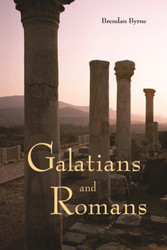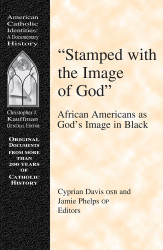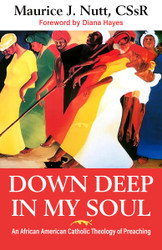No Longer Slaves brings the ancient New Testament message into conversation with African American culture. Twenty centuries after Paul penned Galatians, American culture in general and American Christianity in particular continue to struggle with the problem of race relations. Our challenges are not identical to those faced by Paul and the Galatians. Yet, when one reads Galatians through the lens of African American experience, striking similarities emerge.
In No Longer Slaves, Brad Braxton helps us see that race relations is a central issue in Galatians. Paul believes that Christ came in order to unite Jews and Gentiles. The church was intended to be a multi-ethnic community in which persons of different backgrounds co-existed harmoniously. Any effort to compel Gentiles to live as Jews is an invalidation of the freedom of the Gospel. Galatians offers us a portrait of an early Christian leader and community sorting out complex social issues.
No Longer Slaves explores the concept of liberation in African American experience. It entails a discussion of American slavery. Rather than depicting African Americans simply as victims of the crimes of slavery and segregation, Braxton describes the creative cultural and religious responses of African Americans to their oppression. He employs a type of reader-response theory that considers the experiences of the reading community as a lens through which texts are read. His discussion of methodology exposes the reader to some of the issues in the current debate without becoming burdensome to the non-specialist.
The remainder of the book is an interpretation of Paul's letter to the Galatians. Although Braxton takes seriously the original context of Galatians and his exegesis engages the Greek text, he offers a contemporary theological reading that privileges the history, experiences, and concerns of African Americans. Those who are concerned about the connection between Christianity and ethnicity will find this interpretation intriguing and challenging.
| Format: | Paperback book |
|---|---|
| Product code: | LP5948 |
| Dimensions: | 6" x 9" |
| Length: | 160 pages |
| Publisher: |
Liturgical Press
|
| ISBN: | 9780814659489 |
| 1-2 copies | $21.95 each |
|---|---|
| 3-9 copies | $20.95 each |
| 10-49 copies | $19.96 each |
| 50-99 copies | $19.46 each |
| 100+ copies | $18.71 each |
Praise
In No Longer Slaves, one finds an informed theologian at work using the critical tools of biblical interpretation with academic freshness and insight.
No Longer Slaves is an outstanding work. It is well written, scholarly, and cogently argued. Braxton walks a fine line between scholar and black preacher, as, on the one hand, the book exhibits an excellent grasp of the history of scholarship on Galatians, while, on the other, it proclaims a message of liberation pertinent to the black church. . . . Braxton is to be commended for this work. New Testament exegetes, clergy, and interested lay persons will each find something of value in this small volume.
Brad Braxton's book is the best example of exegesis in which contemporary experience, lived and reflected upon, informs and illuminates the biblical text. The meaning of past struggles is informed in the process of engaging with contemporary Afro-American reality. It is a major contribution to biblical interpretation.
. . . brings the message of Galatians into conversation with contemporary African American culture.
Brad Braxton reads Paul's letters to the Galatians through the lens of African-American culture. This approach is one more excellent example that offers new ways to interpret the biblical text from the vantage point of specific social locations. . . . Though dealing with sophisticated questions of interpretation, Braxtons valuable book is readable for beginning as well as advanced readers.
Author
Brad Ronnell Braxton, PhD, is the Jessie Ball DuPont Assistant Professor of Homiletics and Biblical Studies at Wake Forest University Divinity School in Winston-Salem, North Carolina. He is an ordained Baptist minister and for five years served as Senior Pastor of Douglas Memorial Community Church in Baltimore, Maryland.





![[Sacra Pagina] Galatians [Sacra Pagina] Galatians](https://cdn11.bigcommerce.com/s-86nw1qhj/images/stencil/190x250/products/4826/5294/cover-750__28028.1639768193.jpg?c=2)



